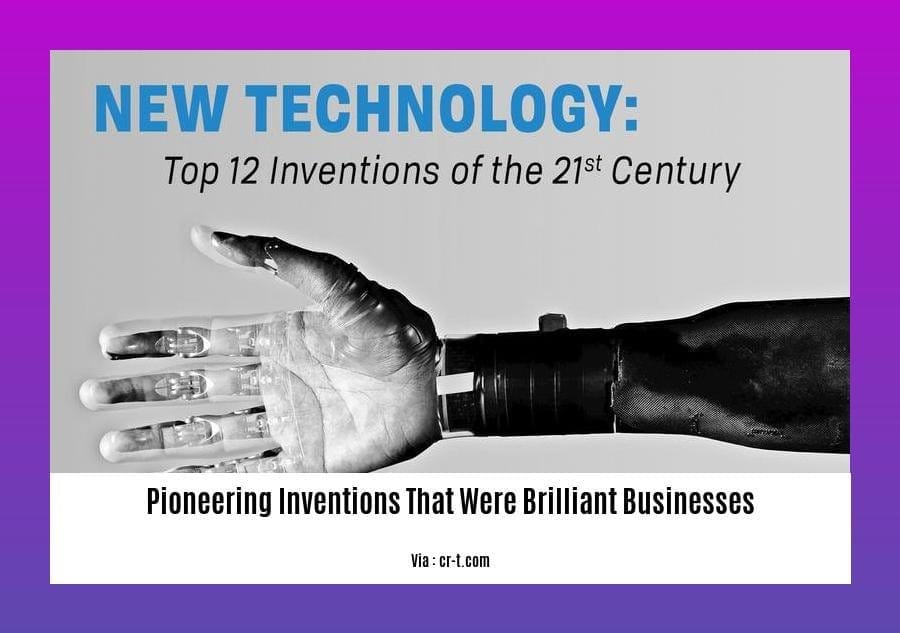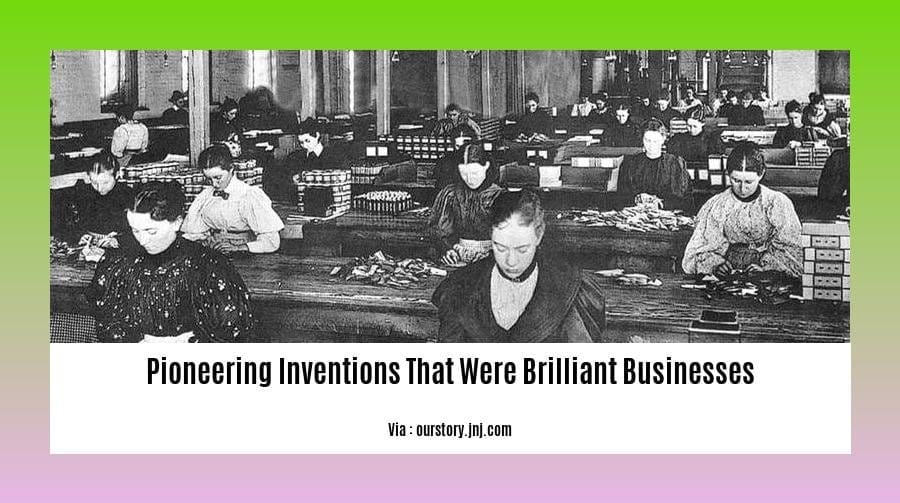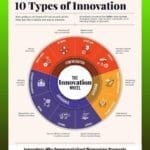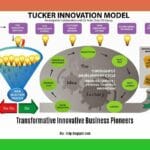Welcome to “Pioneering Inventions That Were Brilliant Businesses,” where we explore the captivating stories of groundbreaking inventions that not only changed the world but also generated substantial financial returns. Join us as we delve into the strategies, execution, and impact of these brilliant creations, uncovering the secrets behind their success and the lessons they hold for aspiring innovators and business leaders alike.
Key Takeaways:
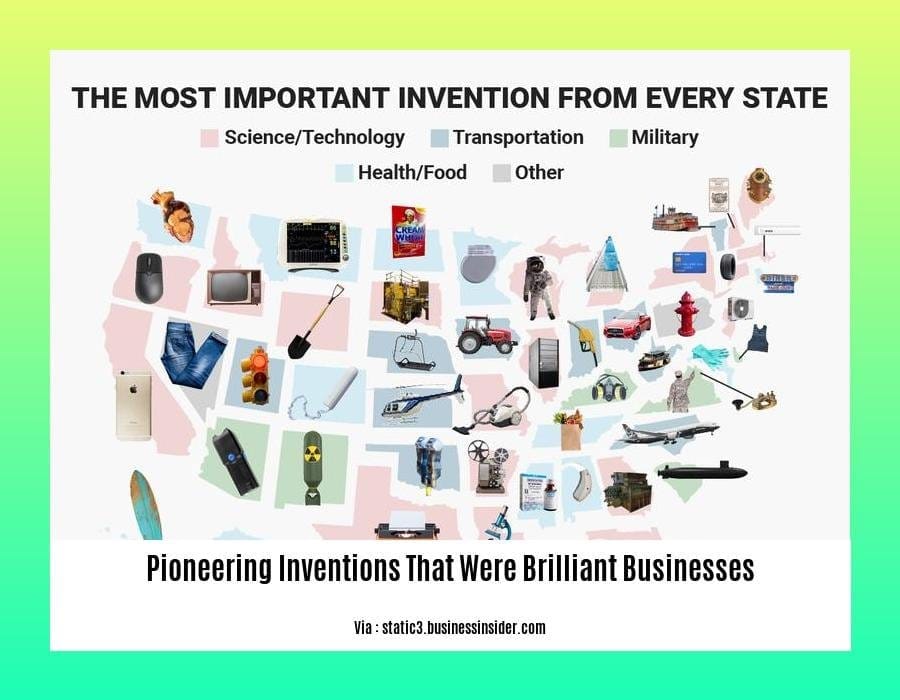
- Thomas Edison’s establishment of a research laboratory fostered innovation and led to numerous patents.
- The Wright Brothers’ pioneering work in aviation laid the foundation for modern air travel.
- Cai Lun’s development of papermaking techniques revolutionized communication and knowledge dissemination.
- Leonardo da Vinci’s visionary designs and inventions set the stage for subsequent scientific advancements.
Pioneering Inventions That Were Brilliant Businesses
The inventors behind the pioneering inventions that were brilliant businesses weren’t just dreamers, but also savvy entrepreneurs who recognized the commercial potential of their inventions and successfully brought them to market. One such inventor was Thomas Edison, who held over 1,000 patents and established the Menlo Park research laboratory, where he developed groundbreaking inventions such as the incandescent light bulb, the phonograph, and the motion picture camera.
Another notable example of an inventor who successfully commercialized his inventions was Orville Wright, who along with his brother Wilbur, pioneered controlled and sustained human flight in 1903. The Wright brothers not only developed the first successful airplane, but also established the Wright Company to manufacture and sell their invention.
Cai Lun, a Chinese inventor from the 2nd century CE, also made a significant contribution to the world of business with his invention of papermaking techniques. Papermaking revolutionized the way information was stored and shared, and Cai Lun’s invention has had a lasting impact on education, communication, and commerce.
Leonardo Da Vinci, the Renaissance painter and inventor, also had a knack for business. His visionary ideas and designs for inventions such as the flying machine and the self-propelled cart were not only innovative but also had the potential to be commercially successful.
These are just a few examples of the many inventors who have combined their creativity and business acumen to create pioneering inventions that were brilliant businesses. Their stories serve as an inspiration to inventors and entrepreneurs alike, demonstrating the power of innovation and the importance of commercializing inventions to bring them to the world.
If you’re curious about the fascinating tales of innovators who commercialized pioneering concepts, you’ll be amazed by the stories of pioneers whose ideas became wildly profitable. Their groundbreaking concepts transformed into business success through their ingenious efforts and savvy business acumen. Read about the visionaries who brought novel concepts to life and reaped the rewards of their entrepreneurial endeavors.
The internet: A global network that has connected the world and fostered innovation
The internet has fundamentally reshaped the way businesses innovate and has fostered an environment of increased knowledge sharing. It has facilitated the swift exchange of information, allowing businesses to stay up-to-date on the latest trends and advancements. The internet has enabled businesses in developing countries to adopt innovative practices and technologies, thereby fostering more inclusive innovation on a global scale.
Key Takeaways:
- The internet’s impact on innovation is multifaceted and can vary for different businesses.
- Through knowledge diffusion, the internet has fostered a more connected ecosystem where businesses can share and access information.
- Businesses in developing countries are increasingly leveraging the internet to enhance their innovation capabilities.
- Uptake rates of the internet vary across regions and industries, influencing the degree of its impact on innovation.
- The internet can support inclusive innovation by empowering a broader range of firms to participate in the innovation process in developing economies.
Most Relevant URL Source:
- Has the Internet Fostered Inclusive Innovation in the Developing World?
The Smartphone: A Handheld Device That Has Become an Indispensable Part of Our Lives
Smartphones have become an integral part of our daily lives, connecting us to the world like never before. From staying informed and entertained to managing our finances and relationships, they’ve become indispensable tools. The smartphone’s integration into our lives has had a profound impact on society and continues to revolutionize the way we live, work, and interact with each other.
Key Takeaways:
- Ubiquitous Presence: Smartphones have become nearly ubiquitous, with billions of people worldwide using them.
- Versatile Tools: They offer a wide range of capabilities beyond traditional phone calls, including internet access, messaging, social media, and GPS navigation.
- Social Connectors: Smartphones have become platforms for social interaction, enabling us to connect with friends and family around the globe.
- Informational Hubs: They provide instant access to a vast repository of information through apps and the internet.
- Convenience and Efficiency: Smartphones streamline our lives by offering mobile banking, shopping, and other essential services.
Most Relevant URL Source:
- The Smartphone: A Revolution in Mobile Communication
Artificial intelligence: A technology that has the potential to transform industries and improve our lives
Imagine a world where machines can think, learn, and make decisions like humans. That’s not science fiction anymore. It’s Artificial intelligence (AI), and it’s already transforming our lives.
Industries that AI is redefining:
- Manufacturing: AI-powered robots work faster, more precisely, and consistently than humans.
- Healthcare: AI analyzes medical images, diagnoses diseases, and aids in personalized treatment plans.
- Finance: AI automates tasks like fraud detection and portfolio optimization, improving efficiency.
- Agriculture: AI helps farmers optimize crop yields, predict weather patterns, and detect pests.
Benefits of AI:
- Automation: AI frees up human workers from routine tasks, allowing them to focus on more creative and strategic endeavors.
- Improved decision-making: AI analyzes vast amounts of data to provide insights and recommendations, enhancing decision-quality.
- Personalized experiences: AI tailors products, services, and marketing to individual preferences, leading to better customer experiences.
Challenges of AI:
- Job Displacement: AI automation may lead to job losses in certain sectors.
- Bias: AI algorithms can perpetuate existing societal biases if not trained correctly.
- Ethical Concerns: AI raises ethical questions about privacy, fairness, and the potential misuse of technology.
Key Takeaways:
- AI is already transforming major industries, including manufacturing, healthcare, finance, and agriculture.
- Benefits of AI include automation, improved decision-making, and personalized experiences.
- Challenges of AI include job displacement, bias, and ethical concerns.
Most Relevant URL Source:
